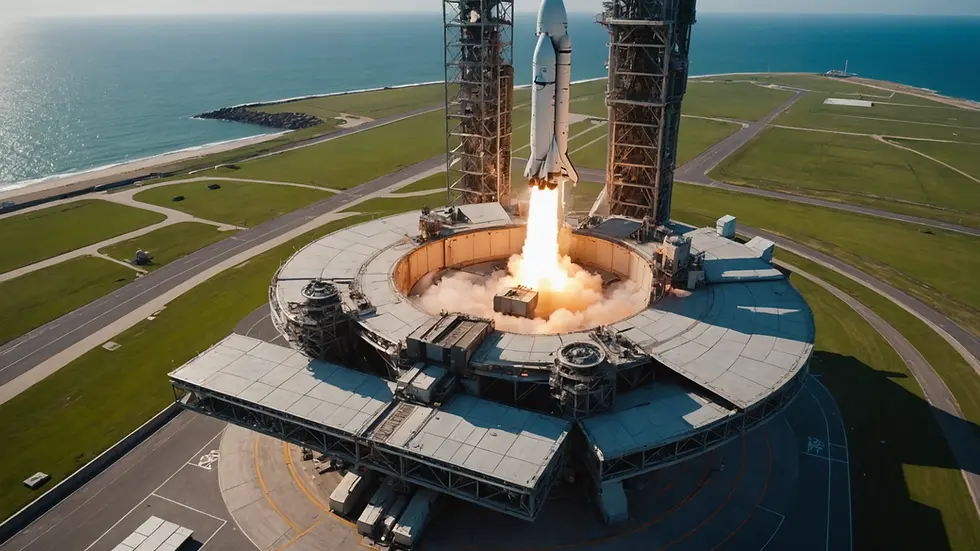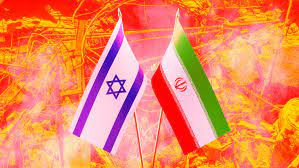How Do Missile Launches Shape Global Diplomacy?
- sohamt31
- Dec 29, 2024
- 3 min read
In an era where international relations are constantly evolving, missile launches have become pivotal events. They not only highlight a country's military strength but also serve as powerful political statements. Understanding the impact of these launches is crucial as they can alter strategic alliances, provoke tensions, and even ignite conflict. Let’s explore how missile launches shape global diplomacy and influence international security dynamics.
Military Demonstrations and Political Signaling
Missile launches are often perceived as displays of military prowess. Nations undertake these tests to project their strength and determination. For instance, North Korea has routinely showcased its missile capabilities, notably conducting over 90 missile tests in 2022 alone. This aggressive show of force is a clear message to both its regional neighbors and the United States, aimed at reinforcing its place on the global stage.
Additionally, military demonstrations can alter negotiation dynamics. When a country launches a missile, rival nations might reassess their diplomatic positions. A clear example of this is Iran, which conducted ballistic missile tests amid nuclear negotiations. Such actions have prompted Western nations to reconsider sanctions and concessions, highlighting how missile tests can act as leverage in negotiations.
Reactions from the International Community
The international community's responses to missile launches typically fall into two main categories: condemnation or engagement. Countries feeling threatened often call for sanctions, as seen after North Korea's tests, which prompted U.N. sanctions banning the export of coal and other goods, significantly impacting its economy.
Conversely, missile launches can instigate dialogue. After provocations, nations sometimes seek to de-escalate tensions through negotiations. A notable example is the 2018 summit between North Korea and South Korea, aimed at curbing missile developments while fostering peace on the Korean Peninsula.
The United Nations usually plays a central role in these discussions. Through resolutions and advocacy for dialogue, it aims to address the security challenges posed by missile launches and promote global stability.
The Role of Media and Public Perception
Media coverage significantly shapes public perceptions of missile launches and their diplomatic ramifications. News reports can accentuate the seriousness of a missile test. For example, when North Korea test-fired an intercontinental ballistic missile (ICBM), media outlets worldwide framed it as a direct threat to global peace, raising alarm among both citizens and policymakers.
Moreover, social media accelerates public sentiment shifts. During incidents like the recent missile launches by Iran, public outcry on platforms like Twitter led citizens to demand government accountability and action. This rapid evolution in public perception can pressure government officials to change their diplomatic strategies, illustrating the media's powerful role in the narrative surrounding missile tests.
The Future of Missile Launches in Diplomacy
Looking ahead, missile launches are likely to remain influential in global diplomacy. As missile technology continues to evolve, nations will face the challenge of balancing deterrence with engagement. For instance, improvements in missile accuracy and range mean that even minor tests could be interpreted as significant threats, raising stakes in regional conflicts.
Clear communication will be vital to prevent misunderstandings that could spiral into conflict. Establishing transparent communication channels and robust diplomatic frameworks will be necessary to manage the complexities introduced by new missile technologies. The future of diplomacy requires a careful navigation of these dynamics to foster peace rather than provoke hostility.
Final Thoughts on Missile Launches in Global Relations
Missile launches are not merely acts of military posturing; they play a critical role in shaping international relations. By analyzing military signaling, global responses, media influence, and technological advancements, we can better understand their implications on global diplomacy. As countries navigate this intricate landscape, the stakes will remain high, emphasizing the need for effective communication and diplomacy in a world increasingly defined by missile capabilities.




Comments